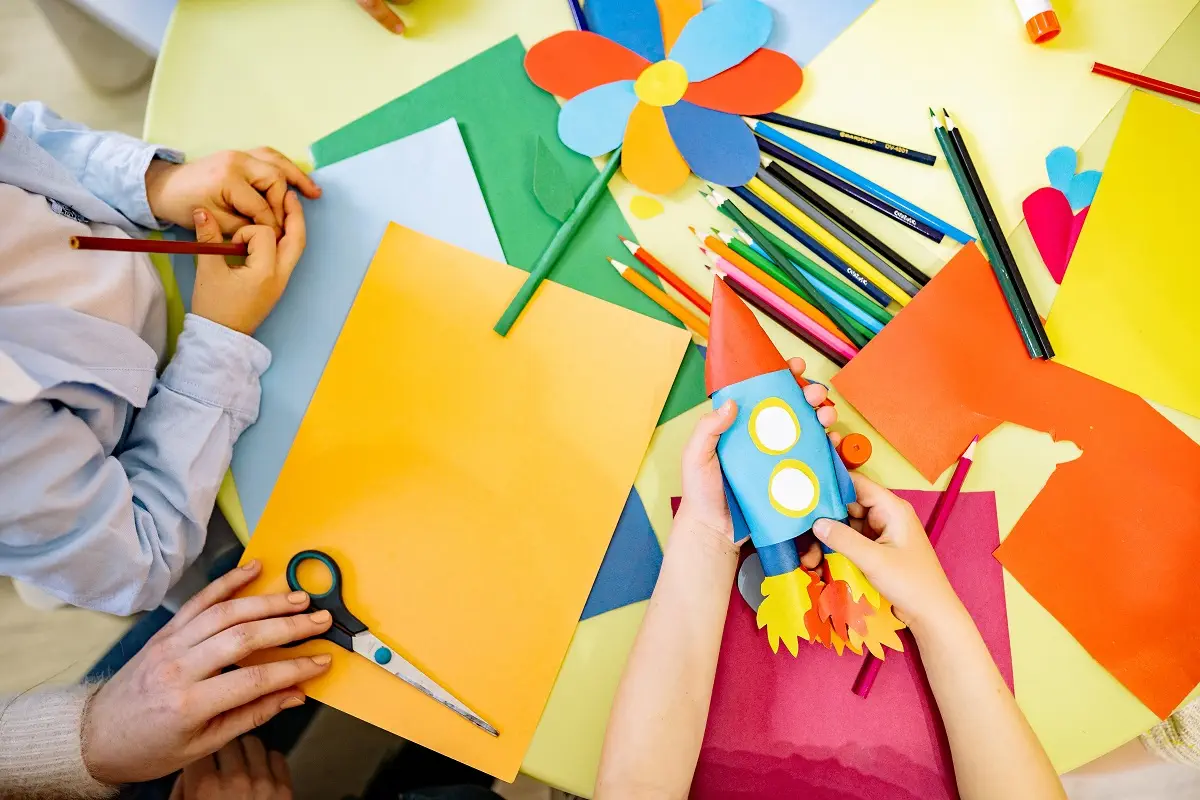
At the outset, online learning looks like a much better alternative to traditional face-to-face classes.
Your kids do not have to wake up early to get ready for school, they have enough time to help you out with household chores, and they now have more time for extracurricular activities—all the while still getting their education. They can do all of these under your watchful eye as well. Unfortunately, what may seem like a straightforward alternative to your child’s education may not be as easy as it seems for some students—and some parents as well!
The fact of the matter is that kids have a lot on their plates. It does not matter whether they are enrolled in an online school in Pasig or elsewhere; students everywhere have loaded schedules. That said, it is crucial for your online learner to find the right balance in their school and personal lives. Indeed, knowing how to balance responsibilities is essential, but it is a necessary skill to learn for effective online learning. School is important, but if your child puts too much emphasis on their education alone, they will inevitably be burned out. Conversely, putting all their focus on non-school activities causes them to miss out on vital development.
With that in mind, striking a healthy balance between school and life is paramount. The article below aims to shed light on the common obstacles in online education and how to overcome them so as to create a well-rounded virtual learning experience.
CHALLENGES IN ONLINE LEARNING EXPERIENCE

Amid a pandemic, schools in the Philippines have decided to shift their classes to a virtual one which has constrained students to shift and adapt to a new learning medium. However, whether a student has decided to move to online learning or has been inadvertently compelled to take this alternative under the present circumstances, the transition to virtual education comes with a myriad of adjustments.
Unlike a classroom setting, however, online education blurs the line between home and school life. As a result, it can be difficult and stressful to separate the two. Even worse is that a myriad of online programs have made it challenging for students to strike a good and healthy balance between school and home life. Currently, an array of schools in the Philippines have rushed into online learning in an endeavor to still provide their students with education amid restricted movement. Unfortunately, not all schools have included vital socialization programs and extracurricular activities. The foregoing contributes to a significant need for a balanced and well-rounded virtual learning experience which a lot of online students need now.
This article has collected a list of tips that parents can use to help their kids develop a healthy school and life balance. In this way, you can ease the load on your child’s plate and breathe a little easier.
TIPS FOR BALANCING ACADEMICS AND EXTRACURRICULAR ACTIVITIES DURING ONLINE LEARNING

1.) Help your child identify distractions
Kids are different. There are kids who get easily distracted while trying to study, and there are kids who seem to be hyper-focused when they are doing schoolwork. Easily distracted kids have trouble focusing—especially at home where they can hear their siblings play which may make it difficult for them to concentrate.
To address this, have a dedicated study area for your child. Establish where this place should be, and together, observe and survey the space for any potential distractions. Look for anything that may get in the way of studying and work together to lessen or completely eliminate those. An excellent example of this is for your child to wear noise-canceling headphones to drown out any background noise.
2.) Teach your child how to create an effective study space
Ideally, your child should have a designated learning environment for online learning. Typically, this study area could be in a cozy room with great lighting and no distractions. Unfortunately, this is not always possible to do. However, your child can still get the most out of their online education even without a dedicated study space. Just make sure that they know how to make any study space available to them more productive.
Demonstrate to your child how they can set up a quiet workplace conducive to studying. Choose an area that is not in the middle of too much activity. Alternatively, you can help them create a portable study station where they can store all of their school and study supplies.
3.) Take note of your child’s strengths
Kids are easily frustrated when they are having difficulty accomplishing tasks. As a result, they fail to see their own strengths and where they excel at. This is where you should step in as a parent. Focus on their strengths, take note of it and point these out to them. In doing so, you can give your child that boost in confidence they need. Say positive things like, “You are keen on details. That is a handy skill that will be useful when you write your book report.” Consistently encourage your child by telling them where their strengths are. Also, note any strengths they have that can be used as tools for studying.
4.) Work with your child’s weaknesses
While noting where their strengths are is important, it is vital to observe their weaknesses as well. Teach your kids to recognize their weaknesses as understanding what they are can help them find ways to adapt during study time. Sit down with your child and brainstorm solutions. Work with their weaknesses and look for ways for them to adapt.
5.) Create checklists together
After your child has identified what their weaknesses and strengths are, they can start creating a list of what they need to keep track of. Creating lists helps them make a blueprint of their day. Also, it allows them to monitor their work without having to rely too much on others. In essence, it teaches them independence.
Start by breaking things down per subject area. An excellent example of this is to have a checklist for their writing subject where there should be a reminder to review errors, a math checklist to include a reminder to check their answers, and the like.
6.) Assist your child in prioritizing important tasks
A vital skill online learners should have when it comes to studying is knowing how to prioritize. They can start by keeping an eye out for deadlines. However, this is not the only way for them to prioritize school tasks and homework.
Alternatively, there are kids who prefer to prioritize their tasks by starting with more manageable tasks first before moving on to the more challenging ones. Conversely, there are kids who prefer to plow through the more complex things first before proceeding to the simpler ones. Observe your child and see which of the options work and make the most sense.
7.) Guide your child and teach them specific study skills
A common oversight among parents is failing to realize that kids do not just know how to study. Parents and caregivers overlook this fact and become frustrated as a result. You must learn to be patient and know that kids do not initially possess any study skills at all.
That said, they need to know how to organize their schedules, break their assignments down into smaller steps, learn how to prioritize tasks, and so on. As a parent, it is then your responsibility to inculcate, enhance and refine these skills. Sharpening these skills will help them progress to other valuable skills such as basic organization skills and note-taking strategies.
8.) Encourage extracurriculars
Allow your kids playtime in their schedules. Apart from relieving stress, it has been shown that extracurricular activities can improve a student’s overall development. In fact, studies have found that students who have extracurricular activities have higher grades, performed better in tests, and have more self-confidence.
With that in mind, encourage your kids to pursue what interests them. In this way, they will have a more rounded online learning experience.
9.) Pick programs that feature growth outside the classroom
Be sure to choose online programs that feature a healthy balance between your child’s school life and extracurricular activities. Some of the online learning programs you can choose can include field trips, clubs, or any other socialization programs.
10.) Monitor Screen Time
Online learners tend to get completely immersed in what they are studying. As a result, they spend a good majority of their time on their screens. Bear in mind that this does not always mean that they are studying. At other times, they may also be pursuing their interests online. That said, it is a good idea to limit how much screen time they have outside of learning hours. Set boundaries and include time outside of the house in their schedules. Also, be sure to include momentary breaks throughout the day.
With the tips above, your child can strike the right balance between online learning and extracurricular activities. As a result, you will feel a lot more secure in their education and help your child to grow, and have a happier and more effective online learning experience.






-logo.png)



